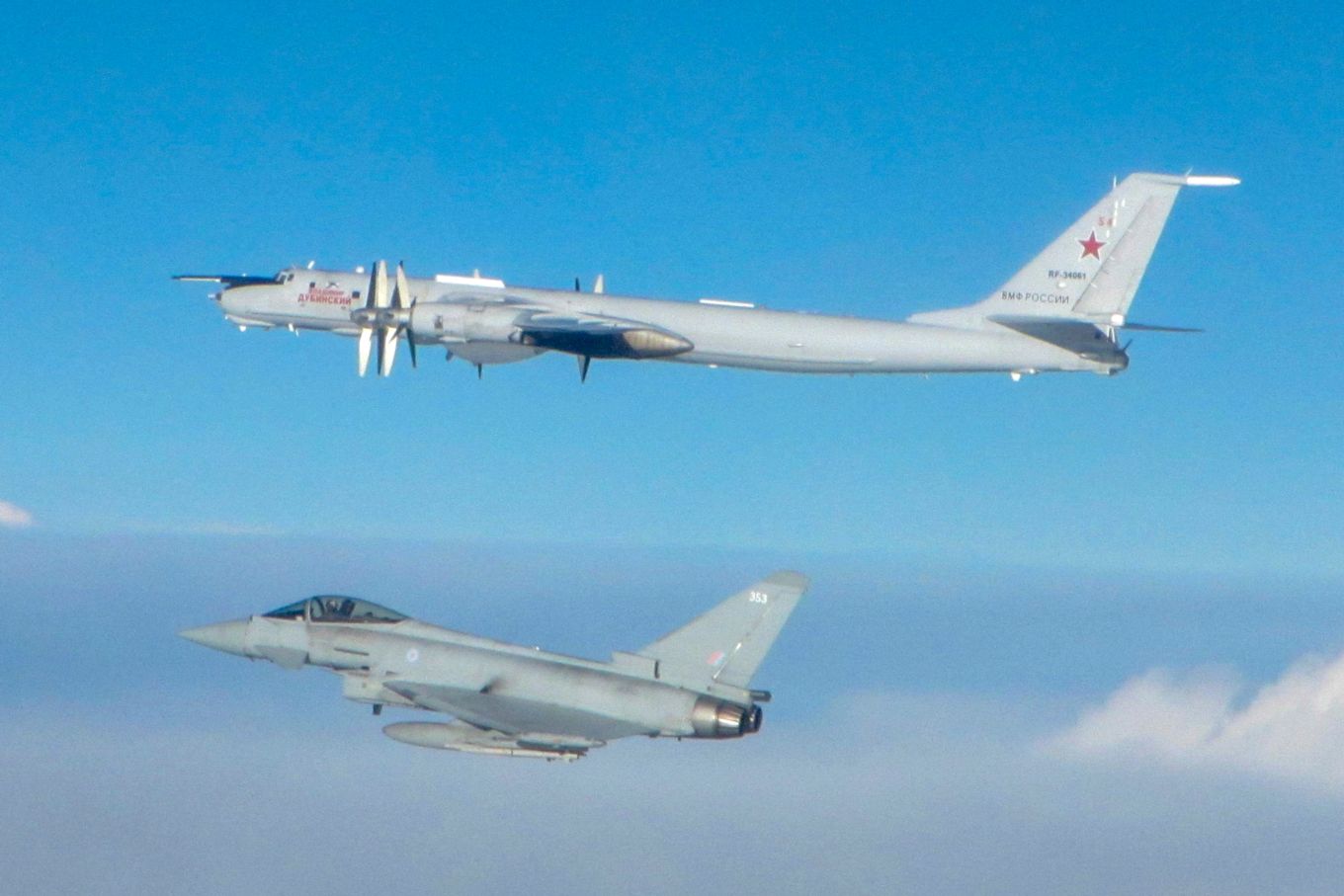RAF quick reaction alert Typhoon aircraft from RAF Lossiemouth scrambled to monitor two Tu-142 Bear Maritime Patrol Aircraft bombers while they were in the UK area of interest. This is the second time RAF jets have been scrambled to monitor Russian aircraft in the last few days.

Air Chief Marshal Mike Wigston, Chief of the Air Staff, said:
‘These Russian bombers do not comply with international air traffic rules, are a hazard to airliners and are not welcome in our airspace. RAF Typhoons, alongside our NATO allies, ensured these Russian aircraft posed no hazard.’
One of the Quick Reaction Alert pilots from RAF Lossiemouth, who intercepted the Russian Bears, said:
“This was my first time intercepting Russian Long Range Aviation and everything ran on rails. Our first intercept occurred to the west of the Shetland Islands, where we shadowed the two Russian Tu-142 Bear-F aircraft as they tracked south.
The UK has some of the busiest airspace in the world and civilian airliners are constantly using the airways in this area, so our presence ensured UK Air Traffic Controllers could continue to manage this busy airspace around the hazard of the Russian activity.
Subsequently the two Russian Bears continued to track south towards the Bay of Biscay where they were met by French Quick Reaction Alert. We intercepted the Bears as they turned back North before we handed them off to additional QRA Typhoons again launched from RAF Lossiemouth.”
BACKGROUND
Two Russian Bear-F Tu-142 long range MPA approached from the North East and flew in international airspace off the West coast of the UK, down towards the Bay of Biscay, where French assets monitored them and then returned North. At no point did the Russian aircraft enter UK sovereign airspace.
Additional air to air refuelling support was provided by RAF Voyager aircraft from RAF Brize Norton alongside comms and radar support from the National Air and Space Operations Centre (High Wycombe) and Air Surveillance and Control System (RAF Boulmer). All of these elements remain on constant vigil to provide the RAF’s contribution to the defence of the UK.
The primary role of the Royal Air Force is to defend the UK, 365, 24/7 and, when necessary, UK interests overseas; the RAF will continue to remain alert and ready to intercept any unidentified military or civilian aircraft around UK airspace.
Recent events have increased awareness of Russian military activity, however, the RAF have routinely intercepted, identified and escorted Russian air assets that transit international airspace within the UK's area of interest.
The primary role of the RAF is to control the air over the UK. Our impressive multi-role Typhoon fighter squadrons are based at RAF Coningsby, RAF Lossiemouth and in the Falkland Islands.
Today and every day they maintain the highest level of readiness. At home, under the direction of our controllers at RAF Boulmer (Northumberland) and RAF Scampton (Lincolnshire) our fighters can be scrambled to intercept, identify and, if required, intervene unidentified aircraft approaching our shores. This is a routine part of the RAF’s air defence role to protect UK airspace.
QRA are launched to intercept unidentified aircraft because the aircraft cannot be identified by any other means. i.e. the aircraft is not talking to civilian or military Air Traffic Control, has not filed a flight plan and is not transmitting a recognisable secondary surveillance radar code.
QRA procedures entail RAF aircraft and crews being held at continuous high readiness 24/7, so that they can take off within minutes to protect UK sovereign airspace. Aircraft are available at each base allowing us to provide good response across the country.
Recommended for you...
